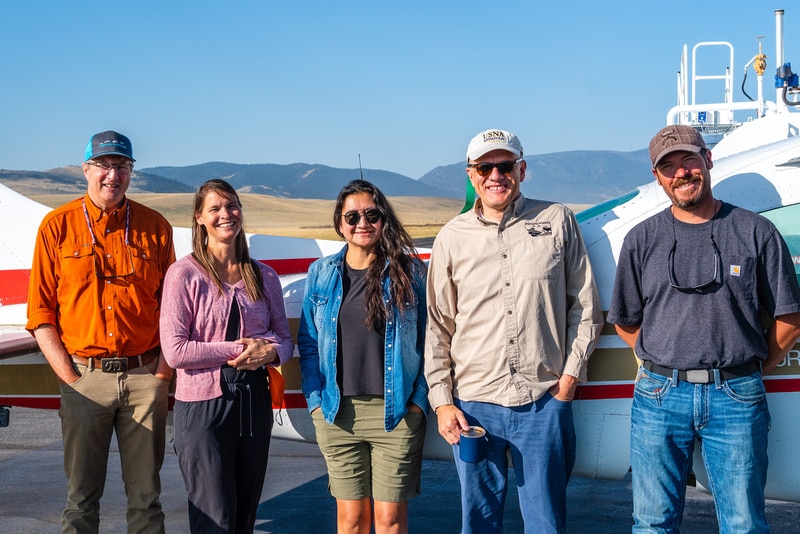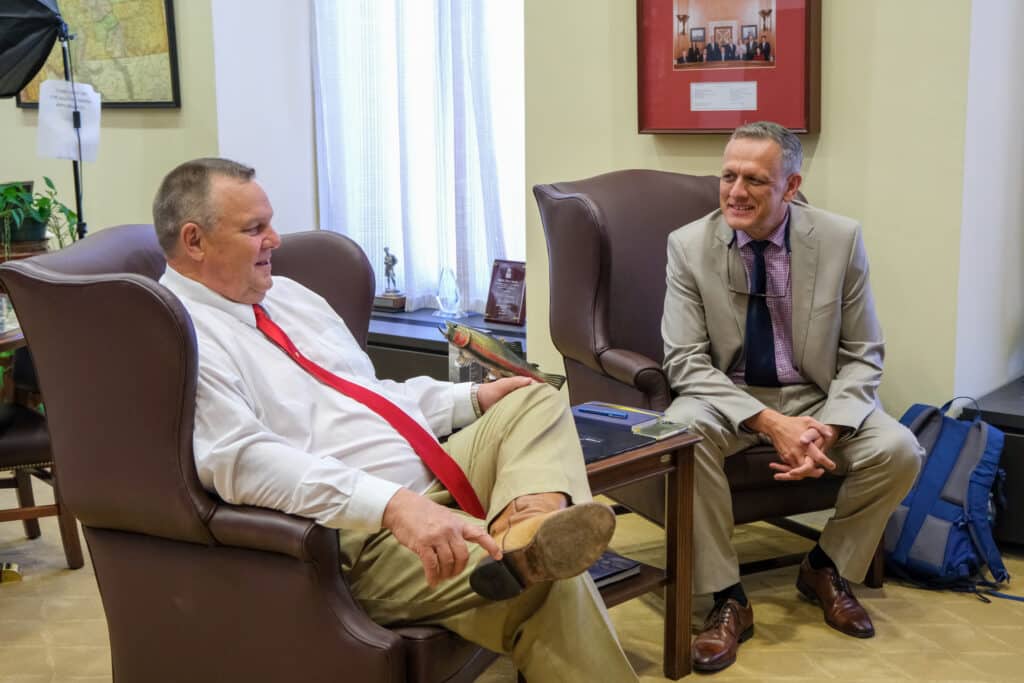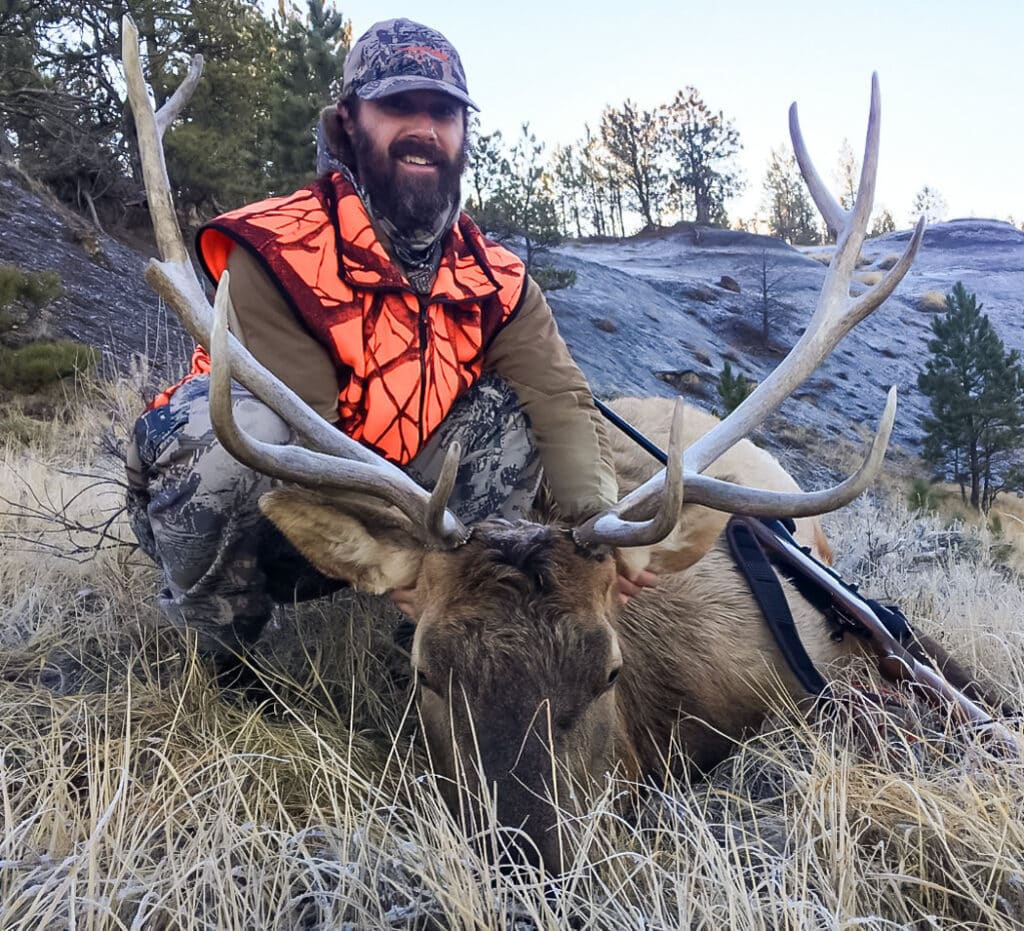Much has been said and written about the east Crazy Mountain-Big Sky land exchange proposal, which has just been released by the U.S. Forest Service for public comment. For decades, solutions to unlocking public land access between checkerboarded private landholdings within the Custer Gallatin National Forest which surround the Crazy Mountains have proven elusive to scores of good faith efforts. Our interests include protecting critical elk, mountain lion, and black bear habitat – among other species – and enhancing public access. We respect property rights, agriculture and ranching, and the sacred significance of these lands to the Apsáalooke (Crow).
Two years ago, members of Montana Wildlife Federation’s Board of Directors thoroughly debated our engagement with the Crazy Mountains Working Group – a locally led collaboration of hunters, ranchers, recreationists, and other community members. One of our Board members, John Salazar, a Livingston hunter, and longtime conservation leader, joined the group and has kept us in the wildlife federation plugged into the discussion. He’s done great work building relationships while seeking solutions to an intractable public land impasse.
In 2020, MWF issued a letter that spelled out conditions for our organizational support of any land exchange. We asked then that “any proposal to accomplish this trade move forward administratively by the Forest Service to give the public the opportunity to review and comment on it.” We stand by that as 2022 draws to a close, and as the Forest Service rolls out the proposal for its 45-day public comment period. That official period will be followed by a Forest Service draft decision notice, and then an additional 45-day objection period. We believe there continues to be time for the collaboration, dialogue, and advocacy that is necessary to strengthen the conservation values of the proposal. We look forward to reviewing all aspects of the proposal and how it aligns with our access goals and conservation vision across the east Crazies landscape.
During this critical period, we recommit to working together with willing participants. We’ll encourage our members and Affiliates and the general public to read the proposal for themselves and be part of the Forest Service administrative process. We’ll show up and listen at the public meetings that are being organized from Big Timber to Big Sky. And we ourselves will continue to listen to and meaningfully evaluate the many spirited arguments about these extraordinary lands.
Last year, we provided the working group with additional detailed concerns, such as limiting the use of so-called “e-bikes” and other mechanized uses that demonstrably disrupt wildlife, and, to further long-term habitat and access goals, we seek a “first right of refusal” that would give public land agencies an opportunity to purchase any future private land that would one day be listed for sale. Our vision, as relayed to the Forest Service, is a “consolidated land pattern in public ownership that would ensure key wildlife habitat and important corridors are protected, provide for public access and recreation, and also allow multiple use opportunities where appropriate.”
We were encouraged by our recent meeting with the Forest Service where they reminded us that the new Custer Gallatin Forest Plan, along with a new federal Backcountry designation, prohibits new road construction, mining, wind farms, heli-skiing, and other disruptive activities, as well buildings and infrastructure on public land, while allowing for public land grazing that is of critical importance to local ranchers and rural communities like Big Timber.
Finally, this past fall I had an amazing opportunity to participate in a flyover of the Crazy Mountains with local landowners, a tribal researcher, and fellow conservationists. From the single-propeller Cessna, I could see high alpine lakes teeming with native fish, a herd of elk, and eagle nests; I learned of ancient Crow vision quest sites at the summits. Ranching operations appeared to be woven into the landscape neatly, and the potential for a harmonious outcome actually became easier to see from that perspective. The risks of not finding a hard-earned, negotiated solution after so many years seem even more urgent as real estate and population growth both rapidly escalate in the communities that surround the Crazy Mountains.

Crazies eco-flight with Rob Sisson, Erica Lighthiser, Francine Spang-Willis, Frank Szollosi and Charlie Rein. Photos by EcoFlight.
By Montana Wildlife Federation Executive Director Frank Szollosi


